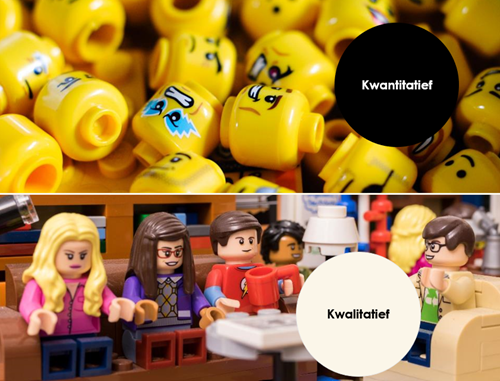


With a modern approach to product development that focuses on the consumer’s vision, food and ingredients companies can launch products onto the market more successfully, assures Charlotte Boone of consultancy Alice down the rabbit hole. It revolves around co-creation.
With a modern approach to product development that focuses on the consumer’s vision, food and ingredients companies can launch products onto the market more successfully, assures Charlotte Boone of consultancy Alice down the rabbit hole. It revolves around co-creation.
“The classic approach starts with the company strategy, following which trends and market reports are consulted. Ideas crystallise, a selection is created and then further refined, resulting in one or more products being launched onto the market. Shortly before production, the products are tested and trialled. This is often done by a group of employees, who state whether or not they like them. But your employees are not ordinary consumers; the question still remains as to whether the consumer wants this product.” These are the words of Charlotte Boone, co-founder of Alice down the rabbit hole. She focuses on it, but the image is still recognisable. “Don’t think in the consumer’s place, ask what the consumer thinks. Don’t try to creep into the head of the consumer. That never works.”
Co-creation
In the modern co-creation approach that the consultancy promotes, the consumer is involved at every phase of the product development process, right from the beginning. All of the intrinsic and extrinsic product features are important to this. “Talk to the target groups you have in mind”, the bio-engineer advises both food companies and ingredients suppliers. It is important to know which ingredients are relevant to the consumer and which aren’t. With this approach, if an ingredient does not catch on with the consumer, it won’t catch on with the food industry either.
Qualitative and quantitative consumer research

It is important to distinguish between qualitative and quantitative consumer research, continues Boone. “Neither is useful on its own for the generation of specific types of information. They are also complementary.” She advises companies to carry out these exercises regularly. She explains that quantitative research focuses on insights into your target public’s general preferences. “What flavours are liked by the most people? How much are they prepared to pay? It is important here for your test public to be sufficiently large, as opinions can often vary, and to ensure that your test group is representative of your target public.” With qualitative research, it’s more about the reasons why consumers make certain choices. “This provides the product development process and product positioning with better guidance”, explains Boone. “So, it’s not about preference in itself, but more about thought processes and behaviours. It is therefore even more important to question the right people. You need to involve as many different types of people from the target group as possible. For example, city dwellers sometimes have different preferences to people who live in the countryside. This also applies to different generations.”

“It is always advisable to maintain a critical perspective on your own products and adjust them to contemporary needs where necessary”, emphasises Marijke Adriaens, CEO of frozen food company Fribona. “For consumers, taste is still the main consideration. It is essential to work towards a product that is, above all, tasty and visually appealing.”...

Scientists from KU Leuven have discovered how oil penetrates snacks during and after the frying process. Recent research findings point to advanced frying techniques that reduce oil absorption, as well as innovative methods to limit oil uptake during the cooling phase. This paves the way for the development of healthier snacks without compromising...

Food companies are increasingly targeting a wider range of consumer groups. Speaking at an event organised by Fenavian, Julian Mellentin of New Nutrition Business said this strategy offers significant opportunities to respond to the diverse health needs and interests of today’s consumers. “Consumers enjoy both animal and plant-based proteins”, he...

Backed by financial partners, Start it @KBC is launching the accelerator programme Scale it Agro, aimed at scale-ups offering sustainable and innovative agricultural solutions for agriculture and horticulture businesses. Kjell Clarysse, programme director at Scale it Agro, goes into more detail.